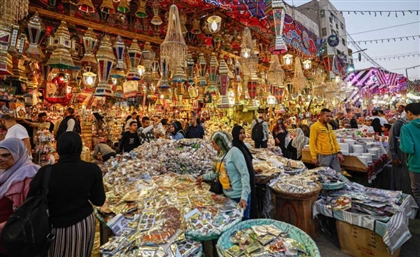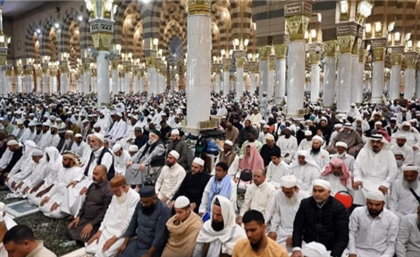We Talk to Haifa Wehbe, Amr Waked, and Dina about the Role of Women in Egyptian TV
With female director Miriam Ahmadi at the helm, Ramadan mosalsal 'El Herbaya' is proving to be one of this year's hottest shows. We go behind the scenes with its stars, Haifa Wehbe, Dina, and Amr Waked to talk about the hit show and feminism in the Egyptian TV industry.
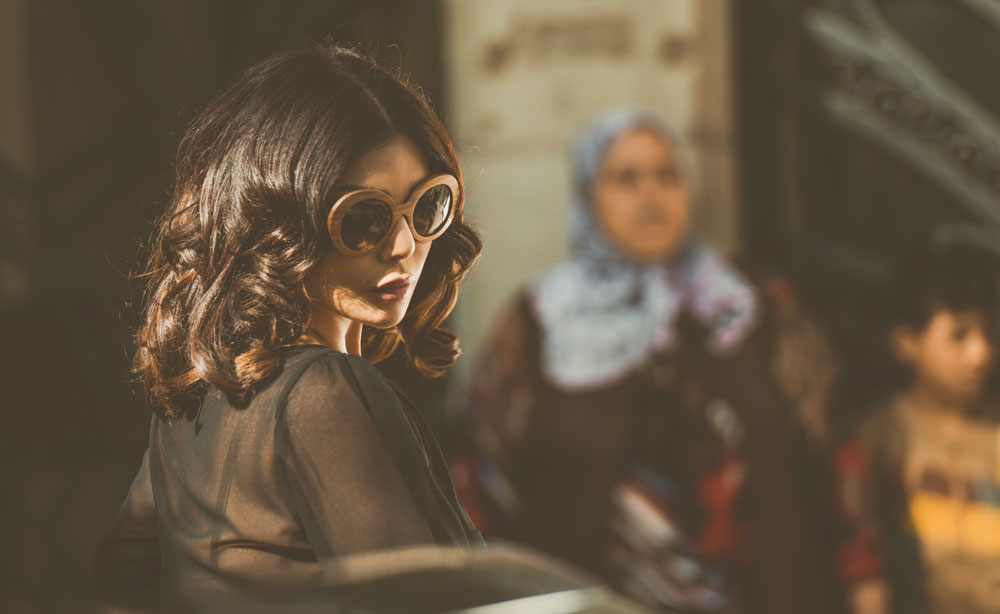
Women’s role in Egyptian television has shifted over the past several decades. Female artists have floated from the background to the foreground; they have gone from being the supporting character – the long-suffering wife, the quirky sister – to being on par with or even superseding their male counterparts. Female-directed projects have gone from an absurd pipe dream to a reality where women pull the directorial strings behind the scenes. Shows are now sold on the power of actress’ names – a feat that was virtually nonexistent 20 years ago. And among the annual onslaught of Ramadan mosalsalat which flood our screens, perhaps no show this year encapsulates this new reality as much as El Herbaya (The Chameleon).

The female-driven project stars Haifa Wehbe and Dina as the focal characters and is directed by Miriam Ahmadi, rendering it a veritable display of girl power in the Egyptian television industry. The show – Ahmadi’s third directorial effort – follows a girl from a low-income Shaabi neighbourhood (played by Wehbe), who is forced to alter, adjust, and ultimately entirely change who she is in order to survive. In the process, she marries four different men, each time ascending so called class rankings and moving up in society, not through malicious intent, but out of a need for self-preservation as she struggles to escape her sordid past which is constantly on the verge of catching up with her.
 Iconic dancer turned actress Dina plays Wehbe's sister, a woman from a Shaabi neighbourhood married to a drug dealer.
Iconic dancer turned actress Dina plays Wehbe's sister, a woman from a Shaabi neighbourhood married to a drug dealer.
“One of the things that actually makes me the happiest about the show is that the lead is a woman, and her sister, the second lead, played by Dina, is a also a woman,” comments director Miriam Ahmadi as she takes a break between shooting scenes on the set of her show, “Media used to be dominated by men – especially directorial ranks – but I feel that is definitely changing now.”
Media used to be dominated by men – especially directorial ranks – but I feel that is definitely changing now.
“I think in this project, in which the director and all the main characters are female, we've done something that many people couldn't, especially in Ramadan, which is a very competitive month,” Haifa Wehbe adds.
The strength and uniqueness of the show is not only about the choice of two female leads, but also about Wehbe’s character in the show, where she marries four men, a role reversal of sorts when it comes to the Arab world. “Not only is it an all-women project and we need more of those in Egypt, but I think the story itself is very original,” says Amr Waked, who plays her final love interest, “I found it very interesting, courageous maybe, to make a story about a woman who married four men – which is the opposite of what happens in Egypt.”
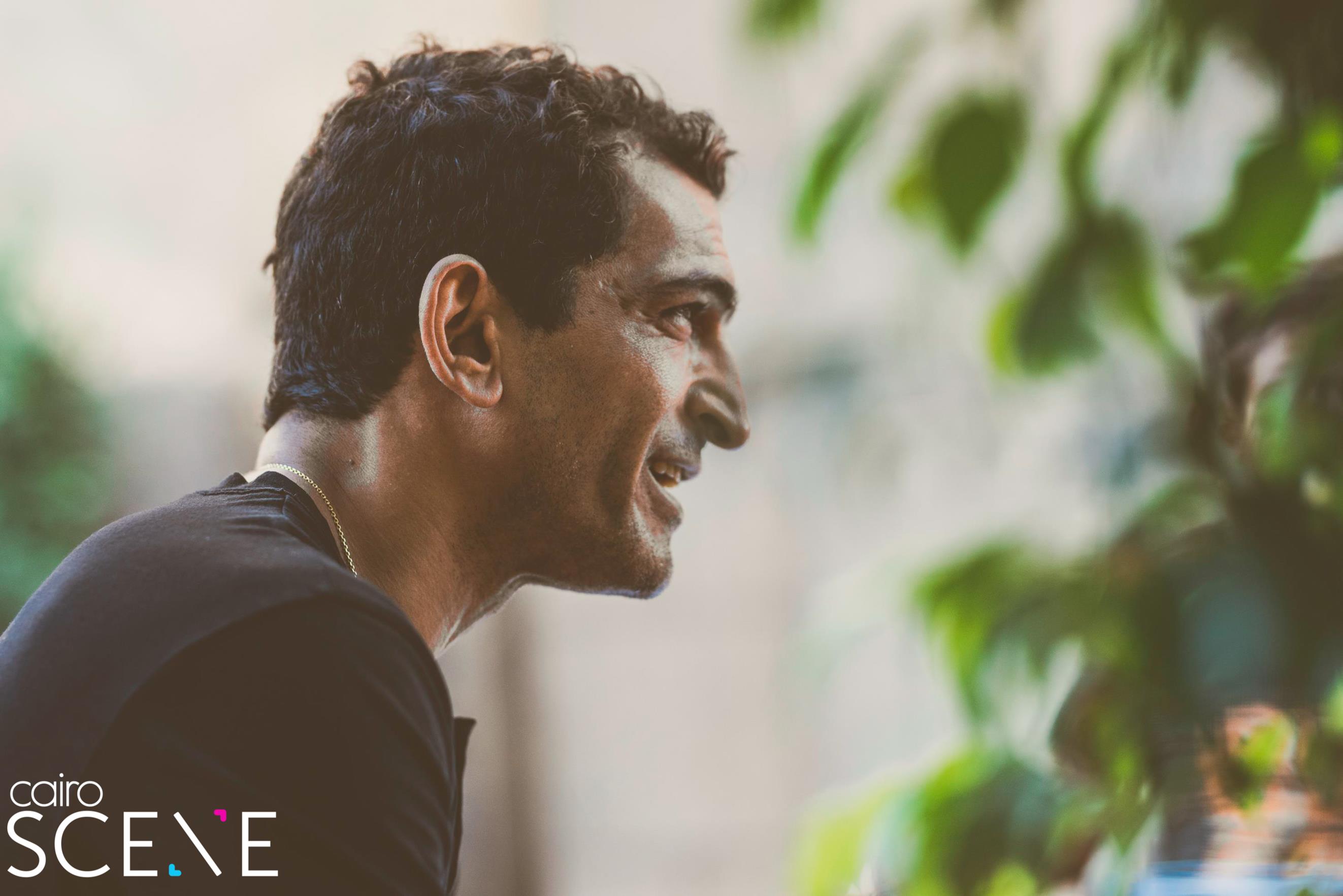
When El Hagg Metwalli premiered over a decade ago, and became a Ramadan sensation, it depicted a rich man who marries four women in a comedic portrayal of their lives; now ten years later, a female director has turned this narrative on its head. But it is not only the unusual trajectory of the character, but also the selection of Haifa Wehbe herself to play the title role of a women from a background so divergent to her own, that was a statement making choice.
When you picture someone from a Shaabi neighbourhood, someone who works as a housekeeper, who’s sister is married to a thug and a drug dealer, and who herself eventually marries a drug dealer, you do not picture Haifa Wehbe, a fact director Ahmadi was acutely aware of. “I can’t deny that some people don't see her as a serious actress; she’s known as a pop star and she doesn’t have extensive acting experience. But when we went through the script together, I found her very keen to take the risk and perform such a complicated role – where her character actually changes four times throughout the series. It was challenging for both of us but I think we were able to get so much out of Haifa and explore her acting abilities.”
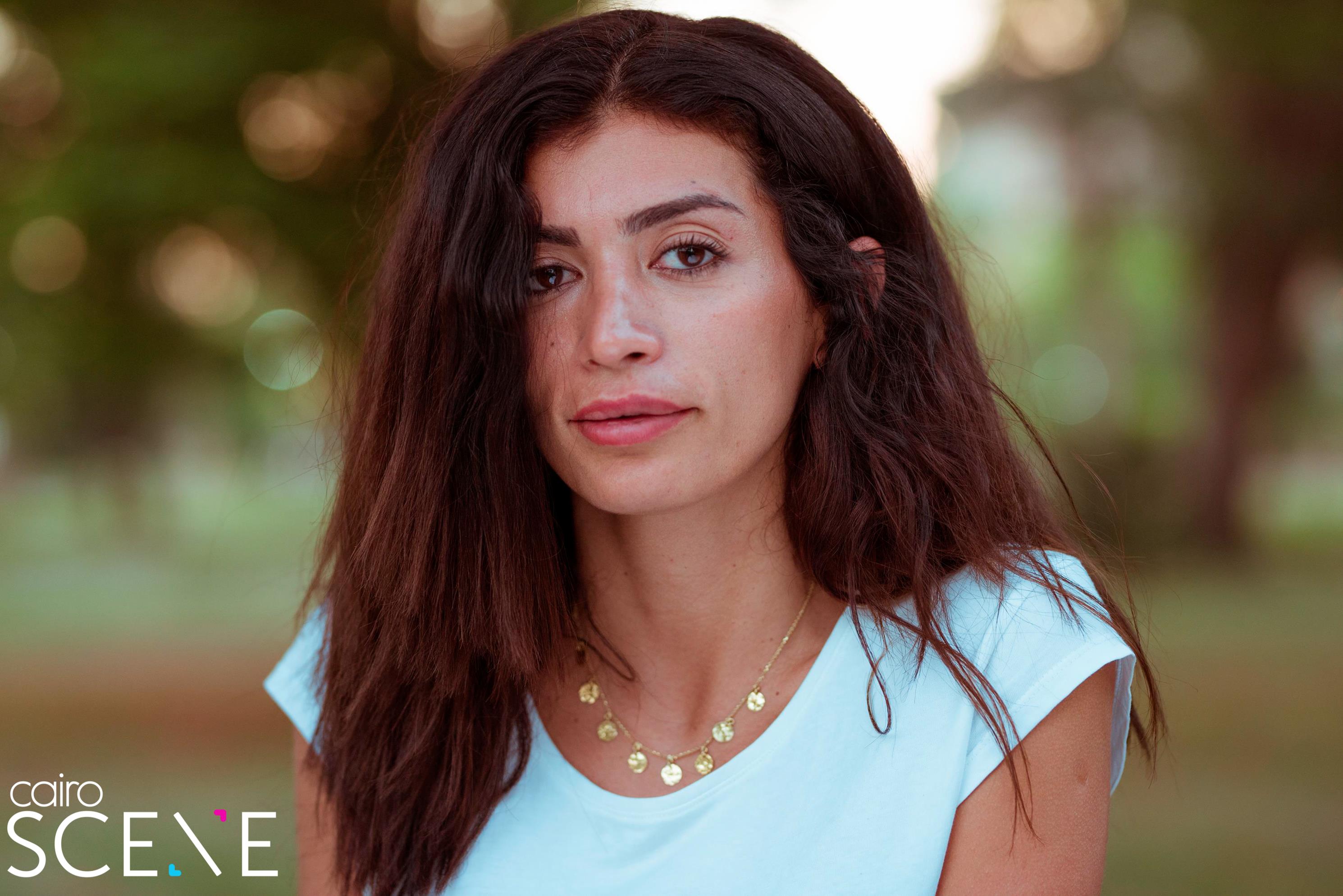 Director Mariam Ahmadi on the set of El Herbaya.
Director Mariam Ahmadi on the set of El Herbaya.
The sultry pop star does justice to the role of Asseleya. Though at first glance, Wehbe’s appearance does not exactly scream Bolaa, her mannerisms, hand gestures, accent, and every look on her face is reflective of someone who grew up precisely in that environment. “Of course there was a lot of studying of the character but essentially I think that if you read something and believe the role, people will in turn believe you,” Wehbe explains simply, “I wanted the whole show to have nothing to do with Haifa – I needed to truly distance myself from ‘me’ in order to play Assaleya.”
“I actually see Haifa as an actress more than anything that has to do with entertainment or singing,” comments Monzer Rehana, who plays Wehbe’s brother in law on the show, married to Dina’s character, “She’s been in a lot of movies like Dokkan Shehata and Maryam and they were important roles and also with very prominent directors. I think she’s a great actress.”
 Monzer Rehana, who plays Dina's husband, Wehbe's brother in law.
Monzer Rehana, who plays Dina's husband, Wehbe's brother in law.
Rehana rounds out the talented cast – who all shot on location in Bolaa, Nazlet Siman and the other neighborhoods depicted in the show – which also includes Khaled Kamal, Hamza El Eily, Rehab El Gamal, and of course, Dina. The dancer turned actress’ portrayal of Haifa’s older sister, a loose woman, looked down upon in her neighbourhood, who marries a drug dealer who then ends up in jail, and then becomes a dealer herself, is absurdly on point. “My character is a completely different person than I am, but Miriam Ahmadi [the director] helped me out a lot,” says Dina, whose impromptu catchphrase from the show ‘tobna ila allah’ is currently trending on social media. “Your colleagues give you an energy boost. No one acts on their own; it’s very important that you have good chemistry with the actors working with you.” 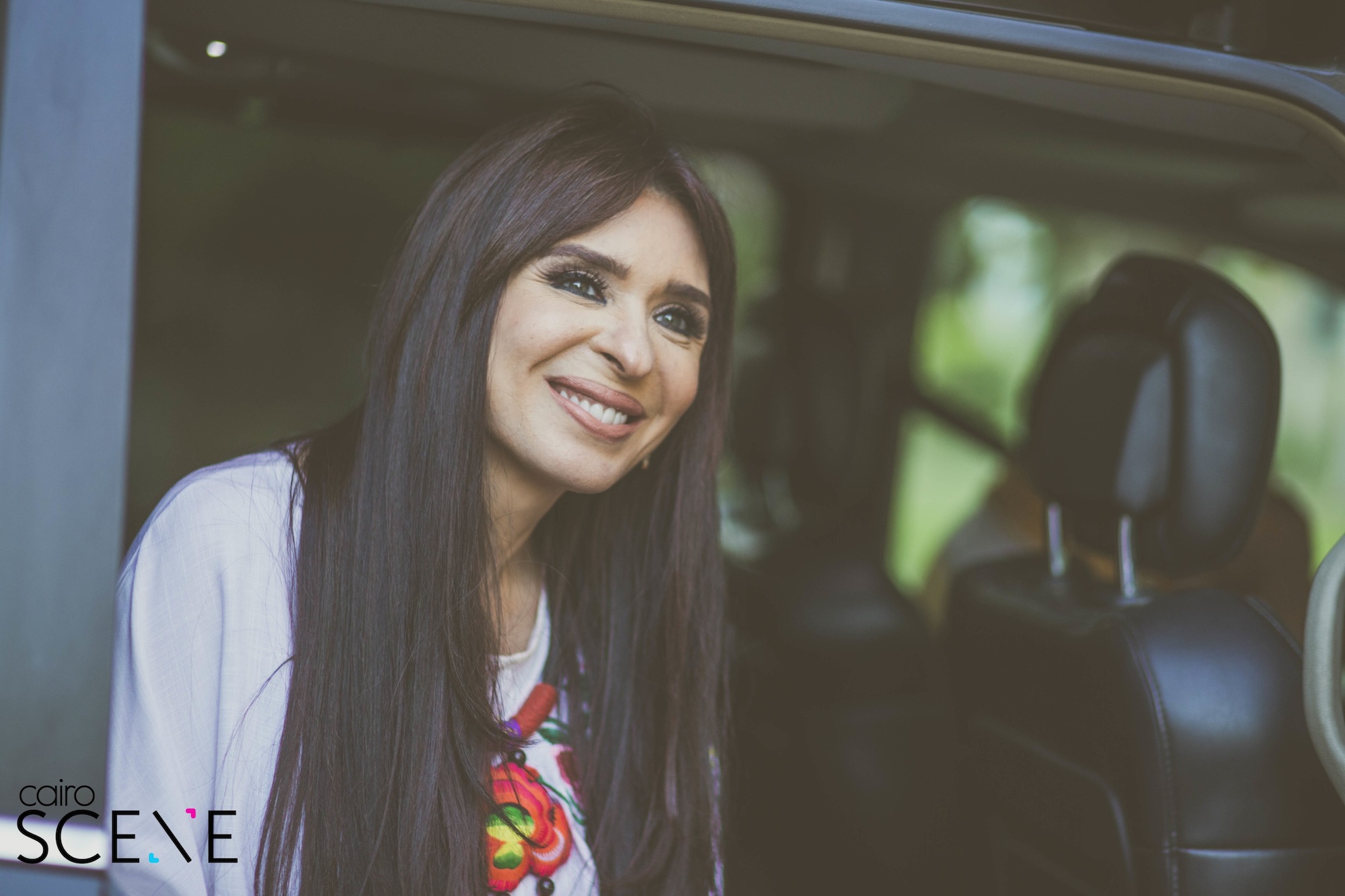
As the show nears its 20th episode, the stakes are elevated for Wehbe’s character, as she is continually on the brink of having her sordid past catch up with her, and she is about to step into the skin of another invented person. “Some people who watched the show thought we were promoting that you need to change yourself in order to cope with the people around you, but we are not presenting a message as much as we are portraying reality,” concludes Ahmadi, “People change every day to adapt to their circumstances – and change doesn’t always have to be for the worse.”

Because change, after all, is the propelling force of life. Change is what allowed typecast pop star Haifa Wehbe to offer compelling onscreen adaptation of a Shaabi girl. And change is also the reason that the Arab world now banks on a show with not one but two female leads, with a female director at the helm. Change can’t be all that bad.
You can check out the show on Al-Nahar, MBC, or YouTube here.
Follow the show on Instagram @el7erbaya.
Shoot by MO4 Network's #MO4Productions
Photography by Ahmed Najeeb
- Previous Article Egypt Wins the Most Medals at the 2017 African Fencing Championship
- Next Article EP Review: Ismael's Low Contrast on Nous Disques




